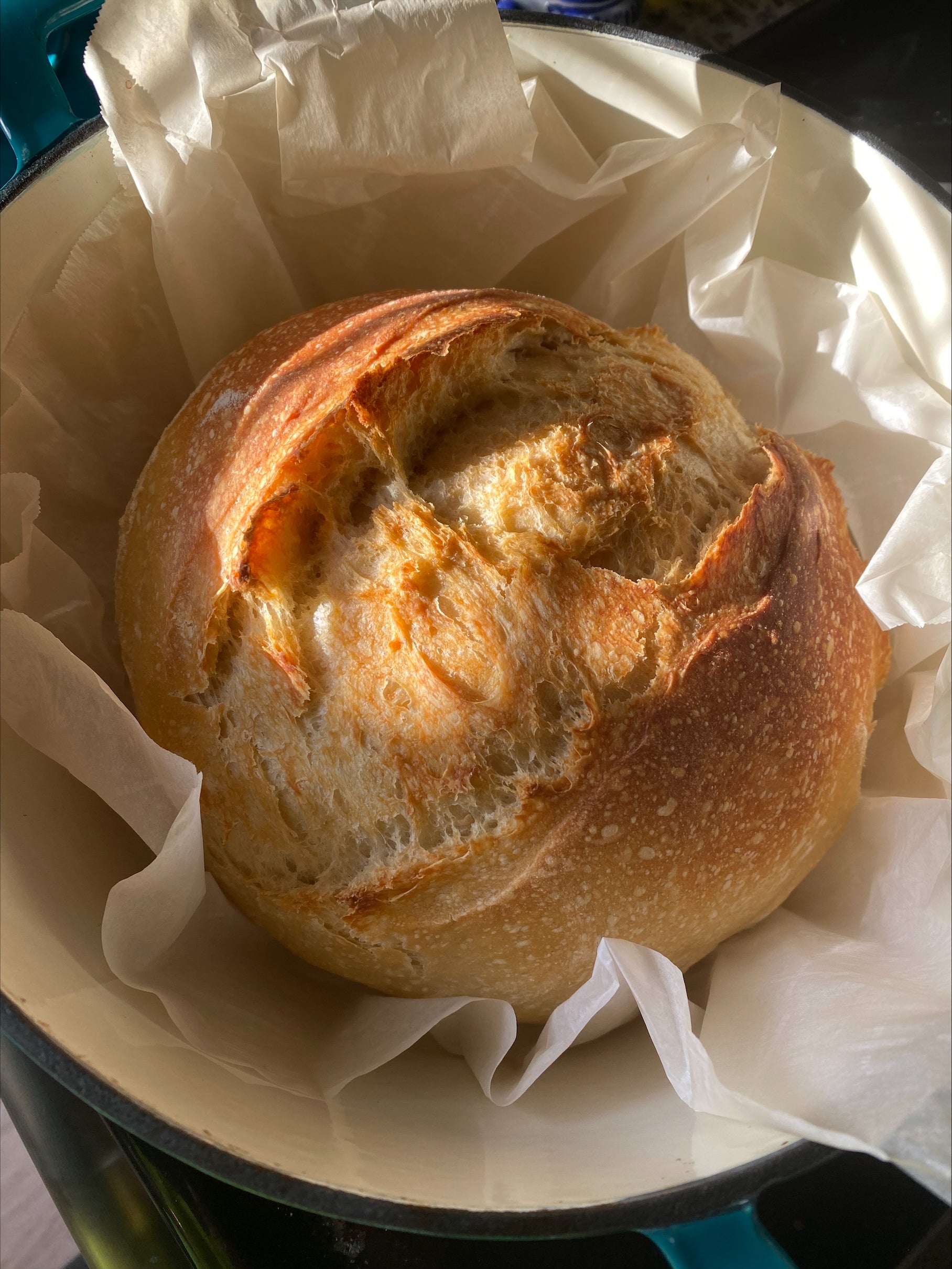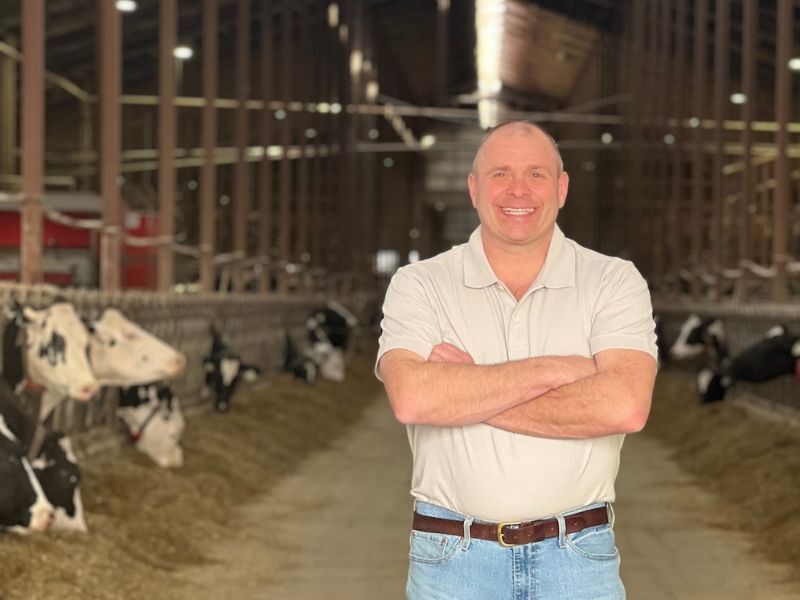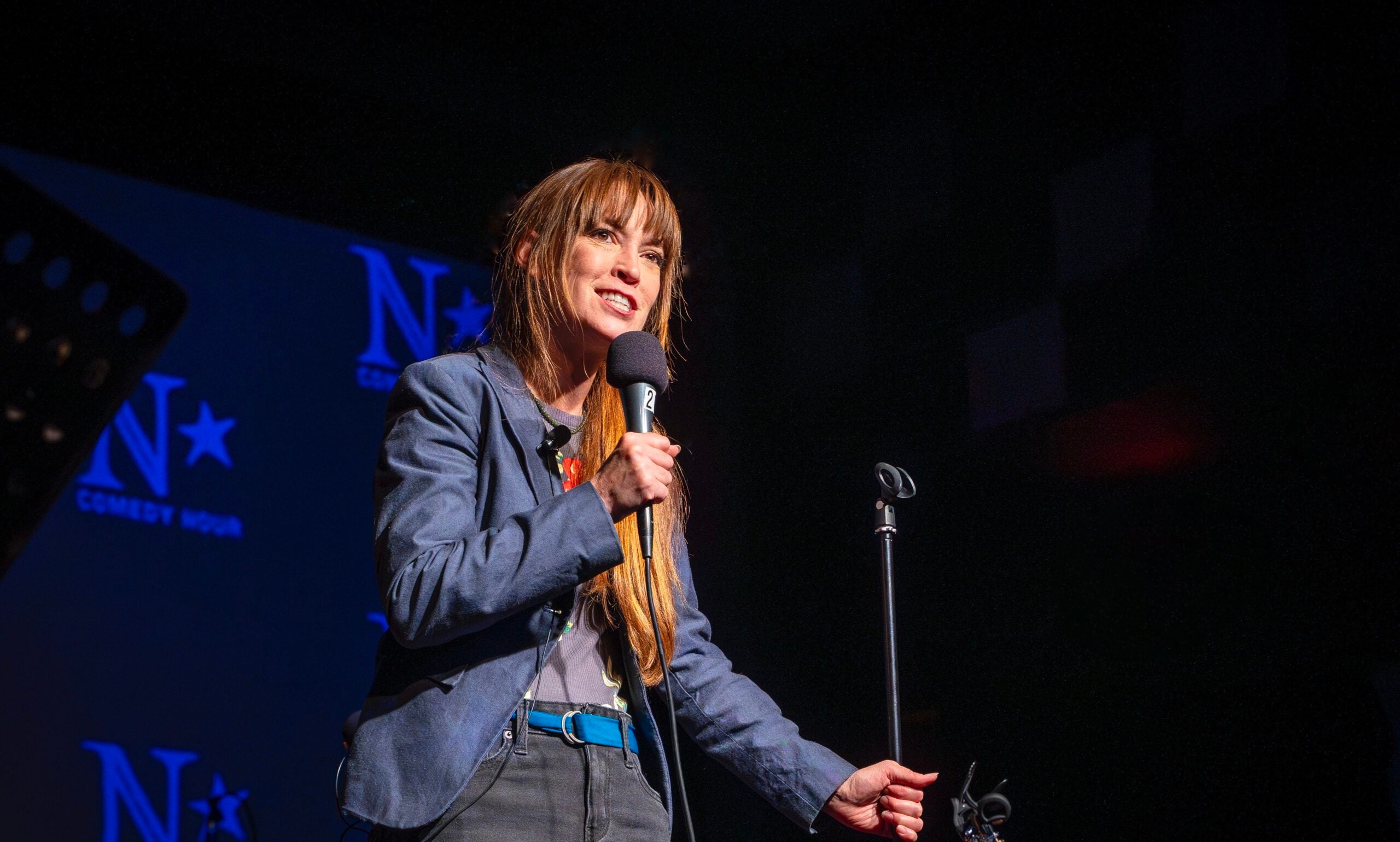I’ve read that baking bread is like writing. There are ingredients carefully pieced together like letters into words, a bit of editing, and a finished product seldom satisfactory to the maker. I’ve written a lot longer than I’ve been baking bread, but I can testify to their likeness.
One of my coworkers here at WPR gave me a sourdough starter earlier this winter. A starter is a live fermented culture of fresh flour and water, typically stored in a glass jar. In order to live, it needs routine “feeding.” A well-fed, active starter is used to make bread in place of commercial yeast.
To learn how to make your own starter, click here.
Stay informed on the latest news
Sign up for WPR’s email newsletter.
My starter (named “Goot”) and I have been wrestling back and forth for about a month. Sometimes I’m pleased with the loaf. Other times, I’ve had to throw out tough, unworkable dough. I’m trying to embrace this learning process.
Last weekend, I traveled to Beloit to bake bread at my parent’s house. I’ve heard dough prefers heat and humidity. My dad and I put a space heater and multiple bowls of water in the smallest room of the house. Then we put the dough in the room to rise.
After several hours of waiting and about 20 minutes of kneading, the result was a pale, lackluster loaf. Luckily, I’m surrounded by people who don’t mind eating dense bread. And I’m realizing there is beauty in slow mastery and age-old practices.

Clara Neupert is a producer for “The Larry Meiller Show.” She started the position in October of 2022. Show ideas and bread tips can be sent to clara.neupert@wpr.org.
Wisconsin Public Radio, © Copyright 2025, Board of Regents of the University of Wisconsin System and Wisconsin Educational Communications Board.







